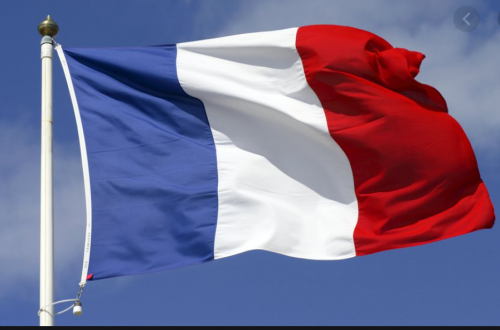This is a cross-post by Paul Goodman (Conservative Home)
Warsi and Pickles clash over Muslim Leadership Council
Eric Pickles and Sayeeda Warsi are battling to win control of the first-ever Government initiative to tackle anti-Muslim hatred – which is due to be launched this week as part of a new Coalition integration policy.
At the heart of the struggle is a fledgling group strongly favoured by Warsi to be called the Muslim Leadership Council or Panel (MLC). Some of its members have not been cleared for working involvement with Government by the Home Office and other departments.
Some MLC members have unmissable connections to the Islamic Society of Britain and the Muslim Council of Britain, which the Government has ended engagement with – as the Conservative Party did at the time of the Daud Abudullah controversy.
Three of the 13 MLC names put to other Departments for views or clearance by Warsi are connected with the three mainstream political parties, two are senior BBC employees and one is an Ismaili. Of the remaining seven, one is linked to the ISB, one to the MCB and one to both. Sources claim that one MLC name has been rejected by the Government. The tussle between Pickles and Warsi raises questions about which Ministers have charge of the initiative, the nature of the new council, and who represents British Muslims – if anyone. Sources insist that one original MLC name – Sir Iqbal Sacranie – has been rejected by the Government.
They say that Warsi is pushing for the council to be strongly represented in a new Government working group on anti-Muslim hatred. I revealed plans for the launch of the latter during the summer.
They also claim that the MLC is attempting to take the lead – and win the backing of government – in the formation of a new Muslim equivalent of the Community Security Trust, which is regarded by the Government as a partner in the fight against anti-semitism.
Pickles, however, is determined to ensure that CLG retains control over the working group, and is insisting that only one member of the MLC is represented on it. He and Warsi are apparently due to meet some of its members shortly.
Which Department is in charge?
The war of manoevre between Warsi and Pickles points to unresolved tensions within the Government over practical questions – such as which Department controls the combat against extremism in general and anti-Muslim hatred in particular.
Pickles’s CLG is officially in charge, since it covers faith and integration – of which countering extremism is a part. The Home Office is responsible for Prevent, and thus mans the frontier between violent extremism and extremism more broadly.
The Foreign Office has overhauled Labour’s Engaging with the Islamic World programme. The Education Department has a new counter-extremism unit. And above the whole structure sits Downing Street.
Warsi has shown a broad interest in Government in cohesion-related matters (see her recent speech on anti-semitism) and a special one in anti-Muslim hatred (her speech on Islamophobia was a curate’s egg). But there is no obvious reason why the Cabinet Office should be involved at all.
The party’s view in Opposition was that no single group represents British Muslims…
There are questions about philosophical matters as well as practical ones – and comparing British Jews and Muslims helps to highlight them. Jews in Britain have a venerable institution to help represent their views to government – the Board of Deputies, established as long ago as 1760.
The Board of Deputies is part of the Government’s working group on anti-semitism – on which the new one on anti-Muslim hatred will be modelled – as are the Community Security Trust (CST) and the Jewish Leadership Council.
The presence and status of these three has won widespread acceptance among British Jews, but the organisations would presumably agree that they cannot represent to governent the variety of views of domestic Jewish communities, let alone individuals.
British Muslims are arguably even more diverse than British Jews – being differentiated by a wider variety of languages and national backgrounds. The most authoritative polling to date has found that 51 per cent believe that no Muslim organisation represents their views.
…But has it changed its mind?
This is why in opposition the Party was careful to emphasise that no single group can possibly represent the multifariousness of British Muslims, who lack the equivalent of a long-standing Board of Deputies.
It also opposed government granting groups special recognition. For example, Warsi said that a women’s group set up by Hazel Blears was “dividing communities and is patronising because it says to Muslim women, “You can engage with us only as Muslim women and not as individuals”.
One prominent Muslim Labour politician went further, suggesting that British Muslims lacked the social and political capacity of British Jews. Sadiq Khan, then Labour’s Cohesion Minister, said of sharia courts that “I don’t think there is that level of sophistication that there is in Jewish law”.
For the Government to grant special favous to any Muslim group would therefore mark a change of course by the Coalition, if not a U-turn by the party itself. The MLC seems to have no website at present, but the names of its members were circulated by the Cabinet Office earlier this year.
Sir Iqbal Sacranie and the Union of Good
Sacranie is a former Secretary-General of the MCB and was knighted under Labour. He is a trustee of the Union of Good, a coalition of charities headed by the hate preacher Yusuf Al Qaradawi, who was banned from Britain by Gordon Brown after pressure from David Cameron in the Commons.
This perhaps accounts for the rejection of his name by the Government after it was advanced as part of the MLC by the Cabinet Office. He is also a trustee of IEngage, which MPs voted to remove as the Secretariat of the All-Party Group on Islamophobia during the summer.
The Union of Good was established to provide money for organisations belonging to Hamas, and has been designated as a Specially Designated Global Terrorist group by the United States Treasury.
The charity Interpal was directed by the Charity Commission in 2009 “to end the charity’s relationship with the Union for Good and ensure that no trustee holds office or has a role within the Union for Good”.
The Union of Good and the MLC
Two other members of the MLC are linked at one remove to the Union of Good – Iftikhar Awan, a trustee of Islamic Relief Worldwide, and Jehangir Malik, the Director of Islamic Relief UK. This is because Islamic Relief Worldwide and Islamic Relief UK are both members of the Union of Good.
However, Islamic Relief has good relations with Government Departments, including CLG, International Development and the Foreign Office, which was reported to have sponsored its 25th Gala dinner in 2009.
An Islamic Relief video was shown at the 2009 party conference, featuring a social action project sponsored by the party and Islamic Relief. It is unclear whether the Coalition’s view of the Union of Good either differs from that of the United States or is simply not resolved.
Sources claim that funding for the MLC project comes mainly from Shabir Randeree, the Chairman of the European Islamic Investment Bank. Randeree sits on the Business Department’s Asia Task Force committee.
The MLC, the ISB and the MCB
Other MLC names put forward by the Cabinet Office include Akeela Ahmed, the Chief Executive Officer of Muslim Youth Helpline, the journalist Sarah Joseph andPeter Sanders, one of the few photographers given permission by the Saudis to photograph the sacred mosque at Mecca.
Muslim Youth Helpline’s sponsors include Government departments and it is an MCB affiliate. Sarah Joseph is a long-standing activist in the Islamic Society of Britain, which itself is an MCB affiliate, and was formerly an MCB official.
Kamal el-Helbawy, the British-based Egyptian Islamist who “served as the official spokesman of the Muslim Brotherhood in the West from 1995-1997”, has said that the Islamic Society of Britain was established by the Muslim Brotherhood.
Ed Husain, author of “The Isalmist” and now a senior fellow at the Council on Foreign Relations in New York, has named the ISB as one of a number of “groups whose leading members include supporters of hardcore Islamist ideologies“.
A Muslim equivalent of the CST could help fill a Muslim leadership gap…
However, he added the qualifying words “with some exceptions”, and it is important to bear this in mind. The ISB is pulled back and forth between its Islamist roots and progressive elements. This tension is reflected in its statement on identity and loyalty.
The question of which Muslim group or organisations are represented on the working group, and which win Ministerial backing for the formation of new Muslim equivalent of the CST, could prove decisive in the continuing story of British Muslims.
The latter initiative in particular could begin to fill a leadership gap which has existed since the arrival of Muslims in Britain in substantial numbers. When I revealed plans for the launch of the Government working group, I wrote that move was sensible.
I have previously suggested that the DCLG Select Committee should examine anti-Muslim hatred and violence, and believe that a Muslim equivalent of the CST is welcome in principle – an expert body that can collect, analyse, respond to and publish statistics relating to violence and hatred.
…So Ministers should proceed with care
It may be claimed that the MLC is extreme because of its links with the Union of Good. It is true that two of its members are senior members of charities operating under the Union of Good umbrella.
However, the Government is not well placed to lecture organisations on the matter given the lack of clarity of its own position. Furthermore, no body that contains Hamira Khan, a former Conservative candidate, and Fiyaz Mughal, an adviser to Nick Clegg, can be described as extreme.
The key point about the MLC returns us to where we began – to the difficulties inherent in privileging any one organisation. The names forwarded by the Cabinet Office are neither representative of all the strands of British Islam nor institutionally linked to mosques.
So Ministers should proceed with care. The Government must establish which department is to make the running – especially since it’s not clear why the Cabinet Office is involved at all. And Downing Street should keep a watchful eye on events.


